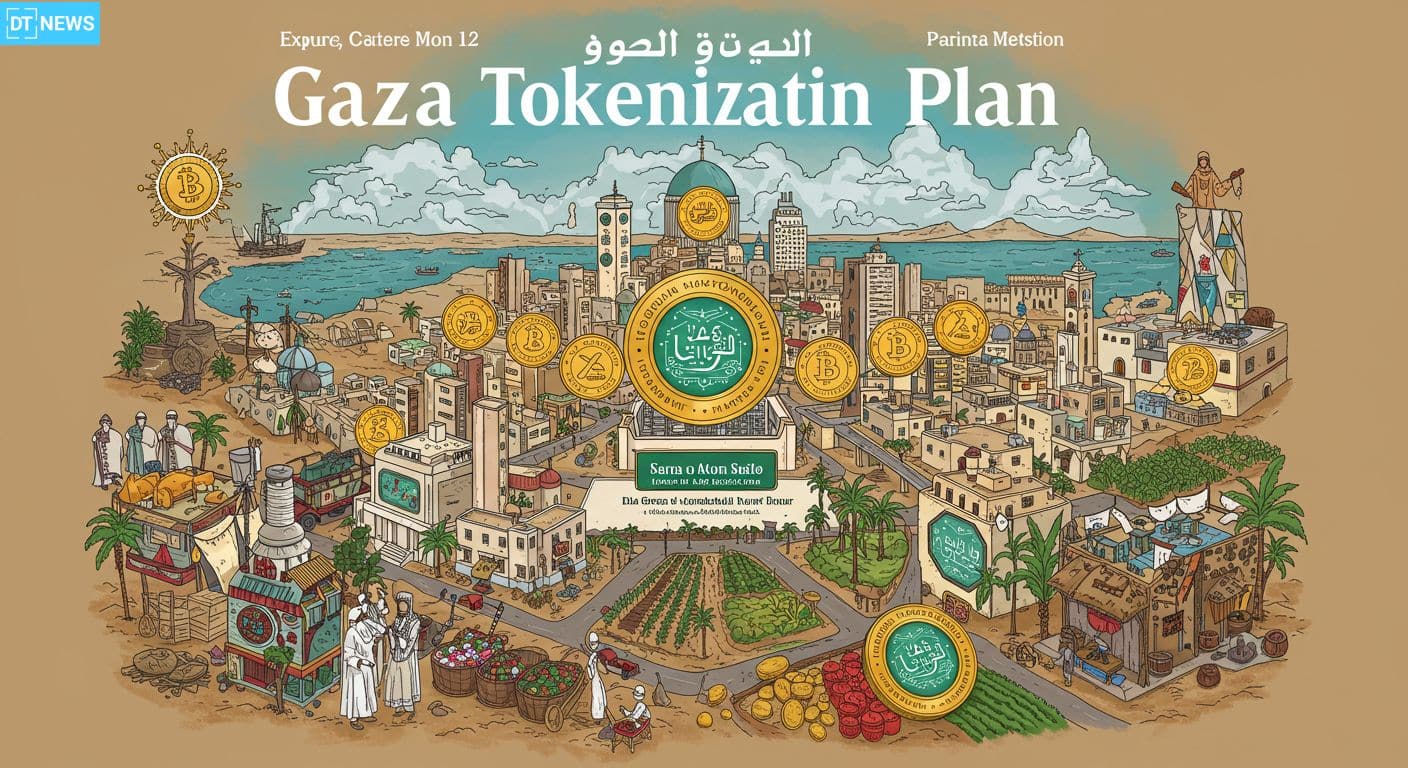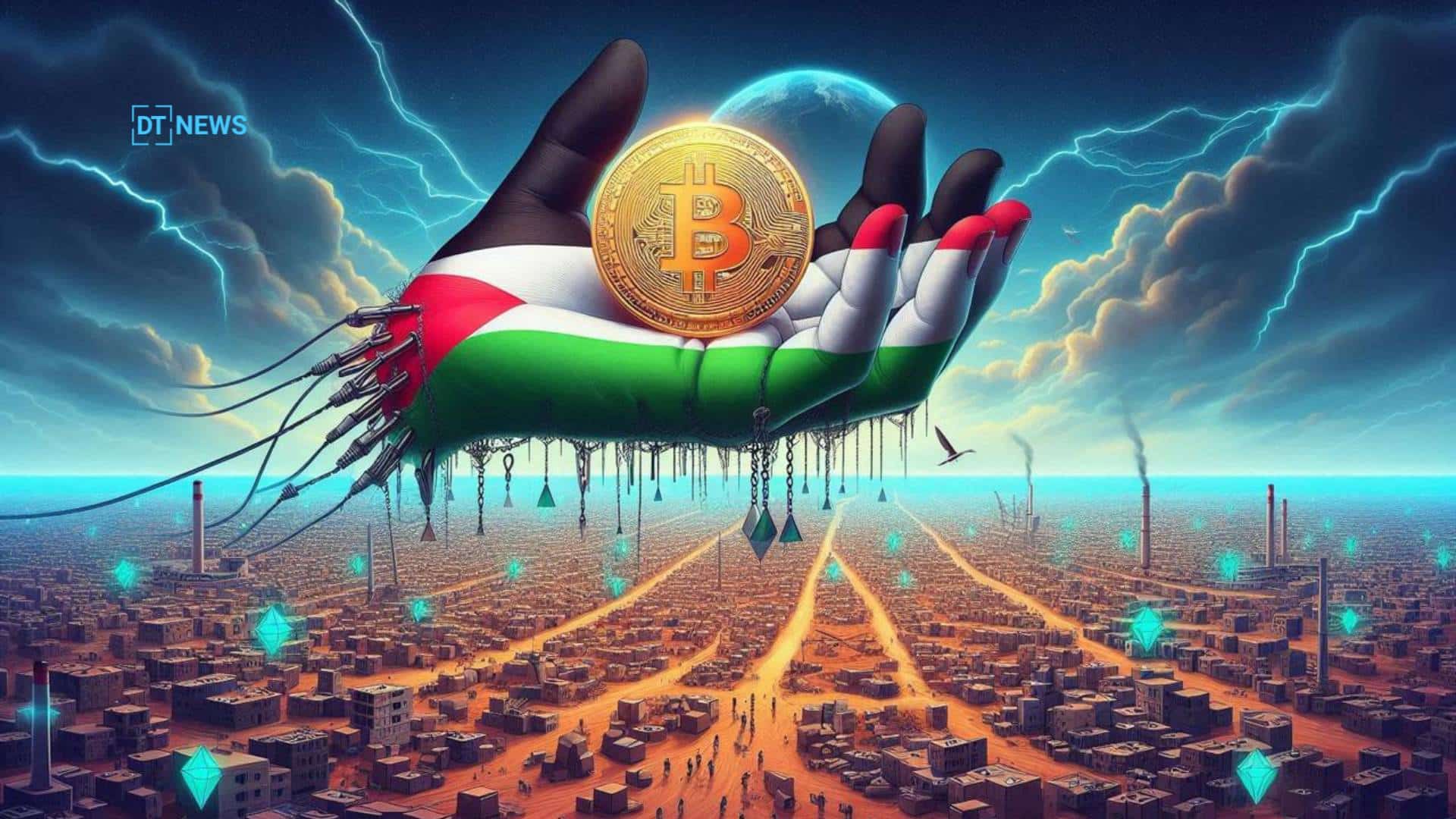According to the latest reports, a plan for Gaza tokenization is stirring up geopolitical and ethical debate as it is being considered under the Trump administration. This is a blockchain-based reconstruction of Gaza under U.S. trusteeship.
It promotes Tokenized land, AI-powered smart cities, and financial incentives for relocation. The digital veneer looks innovative but critics warn of dark cycles of displacement and foreign control.
U.S. Trusteeship at the Heart of the Great Trust Proposal
Sources reported a 38-page prospectus, the “Gaza Reconstitution, Economic Acceleration and Transformation Trust” (GREAT Trust), which puts U.S. trusteeship over the Gaza Strip for at least 10 years. As reported by The Washington Post, up to 2 million residents will be relocated voluntarily, receiving digital tokens in exchange for their land; redeemable later for apartments in new smart cities.
Palestinians who opt in will get $5,000, 4 years of rent subsidies, and 1 year of food aid. The goal is to finance reconstruction through token sales, with land recorded on blockchain to allow fractional ownership, liquidity and speculation.

Also read: What’s Next for Crypto? Markets Reeling Amid Escalating Global Tensions
Tokenized Land Meets Smart City Utopia Backed by AI
The proposal goes further, outlining a futuristic Gaza with 6 to 8 smart cities, where digital governance will handle everything from housing to mobility. Mega-project plans include ports, railroads, a highway, AI data centers, artificial resort islands and a so-called “Elon Musk Smart Manufacturing Zone”; a “Gaza Riviera” in the making.
Tokenization, Trusts and Contested Economics
Seen through the lens of Real-World Asset (RWA) tokenization, this plan turns public land into financial instruments. Palestinian landowners can contribute property into the GREAT Trust for tokens claiming future housing rights.
Boston Consulting Group’s financial modeling projected that 25% of Gazans would be relocated, with payout estimates of $9,000 per person and a $324 billion GDP injection.
Meanwhile, it envisions revenue-generating “Trump Riviera” and “Elon Zone”; blockchain-fueled zones of high-tech and luxury.
Ethical and Legal Backlash
The Council on American-Islamic Relations, however, criticized the plan, calling it “morally repugnant” and “war criminal in scale” for combining takeover with mass land seizure via tokens. Civil society organizations and human rights groups have described forced or coerced relocation presented as voluntary channels as exploitative and legally scandalous.
The Tony Blair Institute has also reportedly; distanced itself from the plan, saying while staff were consulted, they did not endorse or author the proposal. BCG has also disavowed involvement, saying the work was unauthorized and the consultants have been fired.
Also read: Trump Crypto Policy 2025 Offers Clarity on Regulation, Silence on BTC Reserve
Global Condemnation and Ongoing Controversy
The international reaction has been swift. Critics say wrapping forced displacement in blockchain language doesn’t make the plan any less problematic. Legal experts say any plan that involves mass displacement of Palestinian residents violates international law and has painful echoes of the 1948 Nakba.

Conclusion
Based on the latest research, experts say the Gaza tokenization plan is a high-tech redevelopment with colonial undertones. Despite the digital innovation, it raises deep ethical, legal and social concerns invoking accusations of land theft, displacement, geopolitical subversion through pseudo-financial instruments.
As the document circulates quietly, its true political weight remains unknown, and the backlash may bury it.
For in-depth analysis and the latest trends in the crypto space, our platform offers expert content regularly.
Summary
The Gaza tokenization plan, also known as the GREAT Trust, proposes US trusteeship over Gaza for 10 years, tokenizing public and private land via blockchain, offering displaced Gazans $5,000, rent subsidies, and digital housing tokens, and funding AI-powered smart cities. The plan however, has been met with global outrage.
Glossary
GREAT Trust: Gaza Reconstitution, Economic Acceleration, and Transformation Trust, the 38-page document.
Tokenization: Digitizing real-world assets like land as tokens on a blockchain.
BCG (Boston Consulting Group): Global consulting firm that did the financial modeling for the plan before backing out.
TBI (Tony Blair Institute): UK-based think tank whose staff worked on the plan but have since disavowed it.
FAQs for Gaza Tokenization Plan
How would Palestinians partake in said Gaza Tokenization Plan?
Participants would get $5,000, rent for 4 years, food for 1 year, and a blockchain token redeemable for housing in new smart cities.
Who developed the plan?
Initial development by Israeli businessmen, financial design by BCG, TBI staff involvement though both have since disavowed.
Why is it so controversial?
Critics say it’s forced displacement under “voluntary” terms and uses tokenization to legitimize land seizure; ethical and legal concerns.
Is the plan implemented?
As of now, it’s only in draft form within White House discussions; no official endorsement or execution has been made public.



















































































































